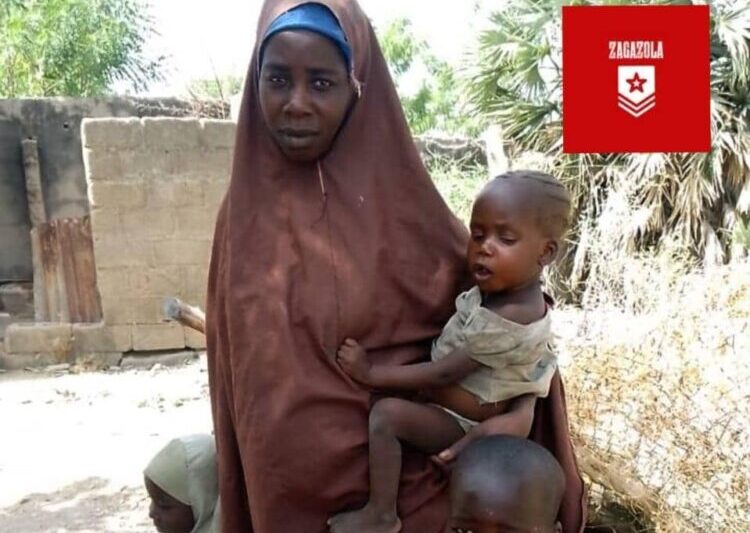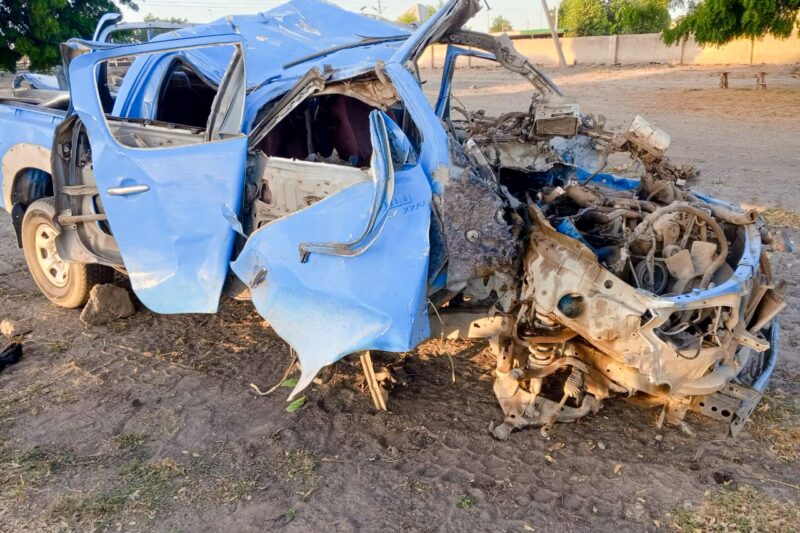The suspension of several polio campaigns in 2020 because of the COVID-19 pandemic had increased the transmission of the circulating mutant poliovirus type 2 (cMPV2) and Nigeria has now recorded 395 new cases in 27 of its states and in the Federal Capital Territory (FCT) Abuja.
Dr Faisal Shuaib, executive director of the National Primary Healthcare Development Agency, said in a statement issued on Friday, January 14, that the outbreak was as a result of an immunity gap in children “due to several reasons, including low routine immunisation coverage and missing children during immunisation campaigns”.
“The suspension of several polio campaigns and other health programmes in 2020, as well as disruptions to routine immunisation because of the COVID-19 pandemic, created further immunity gaps which led to new and wider outbreaks and further increased transmission of the circulating mutant poliovirus both globally and within Nigeria.”
Nigeria and the African region were certified free of wild polio virus (WPV) by the World Health Organisation on August 25, 2020, following a rigorous verification and certification process by the African Regional Commission for the Certification of Poliomyelitis Eradication (ARCC) which spanned three years of no detection of WPV. Until now, there had been no cases of WPV anywhere in the country.
Shuaib said the viruses thrived in areas with poor sanitation, open defecation and inadequate access to clean drinking water. These had allowed the virus to be transmitted easily from one person to another through contaminated water and poor sewage disposal.
Malnutrition occasioned by increasing poverty was also a predisposing factor in exposed children, he said.
RNI reporter Nana Khadija Mustapha spoke to Abba Mustapha Tijjani, a primary healthcare worker with the National Programme on Immunisation Unit, who said they were very concerned about the spread of the circulating mutant poliovirus.
“The poliovirus is of a different type but right now we are faced with the cytologic dry poliovirus which we found out after sampling water from gutters and tested in the laboratory and which has now been defined as a variant type.”
He said the symptoms could not be recognised in the early stages and, because it was air-borne, a carrier could spread the virus to thousands. The virus could also be transferred through excretion, urine and unsafe water, or anything that had come into contact with these. Hygiene, he said, was of utmost importance.
Tijjani said only if children were vaccinated would their immune systems be protected from the virus.
Because of the insurgency, which started in 2009, Maiduguri, the capital of Borno State, had experienced an influx of people from communities surrounding the city, which had increased the population, meaning it had to face major challenges, such as resettlement and healthcare.
Tijjani said: “Internally displaced persons [IDPs] or returnees are more likely to be affected sooner because they are more vulnerable and might find it difficult to get their children vaccinated.”
He said every child needed to be vaccinated so that their immune system was strong and they could grow in sound health.
“The polio vaccine is the only way to protect children,” he said.
Bawa Bukar, a polio vaccine worker for 12 years in Maiduguri, said that even before the pandemic they had encountered many problems in the campaigns, some of which involved going from door to door to vaccinate children.
“We found that only two or three children out of five were vaccinated. It’s a thankless job often because many parents refuse to give their consent for their children to be vaccinated. They say they have to pay for hospital medication, but the polio vaccine is free. That makes them suspicious about the vaccine. They think if it’s free there must be something wrong in the vaccine.
“Once they know we are polio vaccine workers, they do not allow us to even see their children. Many have the incorrect perception that the vaccination will make their children infertile and that it is a means to reduce the population.
“Most parents are totally ignorant until we tell them what the vaccine is for and convince them that it will protect, not harm, their children. Sometimes, after parents have spoken to community leaders, they agree to have their children vaccinated.”
Bukar said they used to hold vaccination awareness events, so that when the campaign workers went to a house, people already knew about it and were more accepting. Now, she said, they were unable to hold these events because of the pandemic and parents were suspicious of them.
“We also used to give one carton of sachet [powdered] milk to each family if they consented to have their children vaccinated. We had some success with that because when the children saw their mates drinking milk, they came to us voluntarily. Some parents even fought over the milk, so they brought their children to be vaccinated. We had high turnouts but not anymore. The pandemic hit the economy hard and we were given less milk to hand out.”
She said they had tried replacing the milk with sweets to fill the gap. But residents were not interested and they started denying the polio workers entry to their houses and access to their kids.
“That affected the number of vaccinations. We begged those who did not get the milk to vaccinate their children, but they refused and told us to leave.”
Bukar said: “When we reported back to our superiors, they used to ask why there were such large numbers of vaccines remaining and they even started suspecting us of not doing our job. They sent monitors with us but still the parents did not readily comply.”
Bukar complained about the poor state of the welfare system, saying sometimes polio workers’ salaries were delayed for as long as four months.
“Any time we complained, we were told to be patient because the pandemic was affecting everyone and everything and things were not as they were before Covid-19.”
She blamed the pandemic for the low turnout for vaccinations.
“I think it is the main reason for the outbreak of polio again in Nigeria. The authorities have to find some way to roll out vaccination campaigns to eradicate the virus.”








